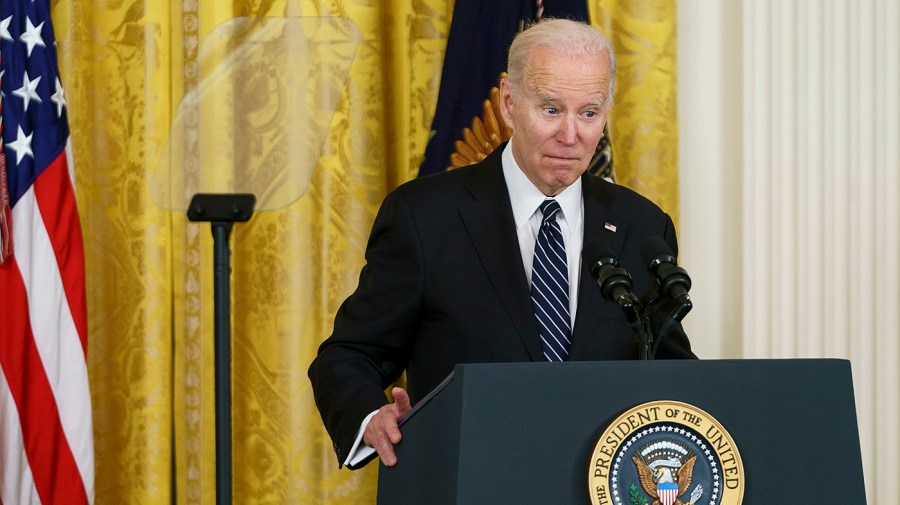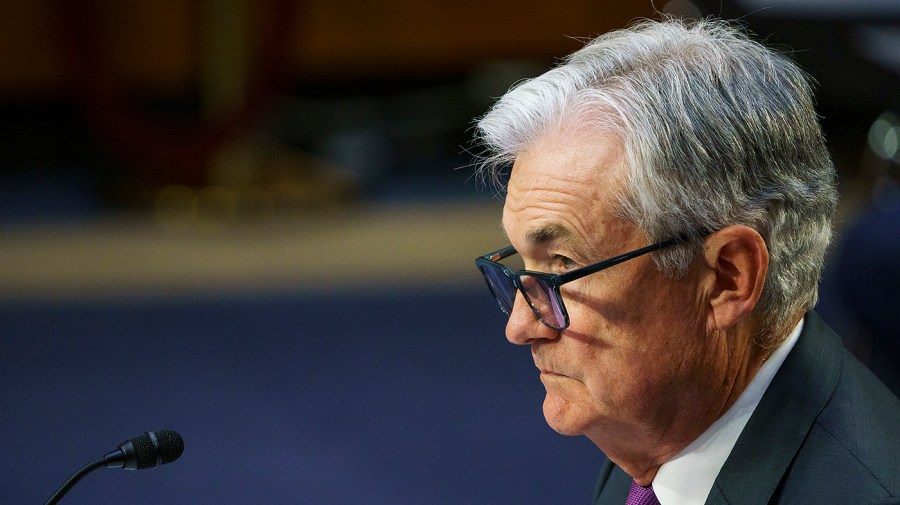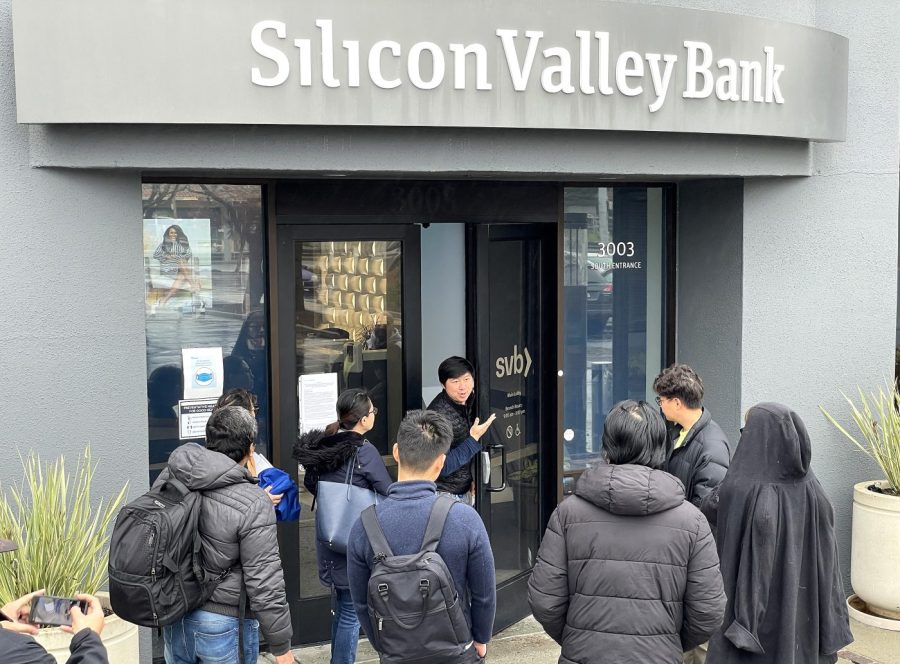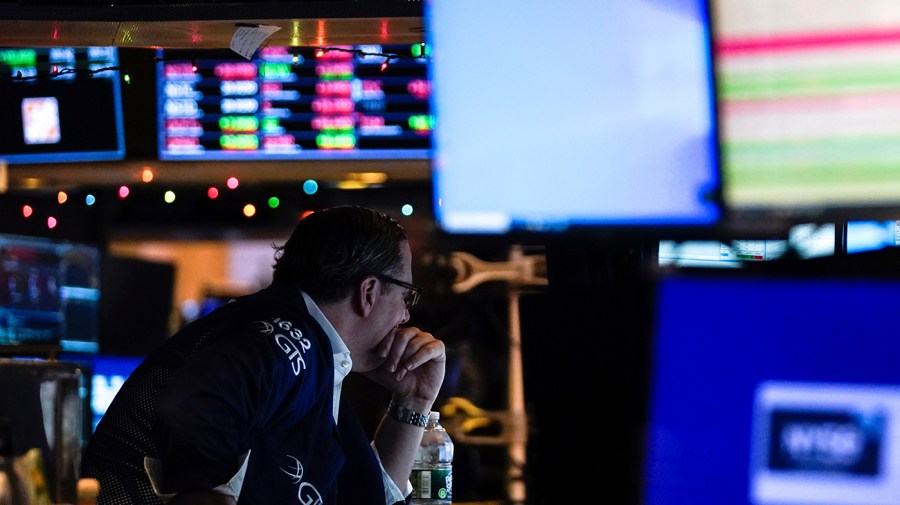Five things to know about the Silicon Valley Bank takeover
The federal government took over Silicon Valley Bank (SVB) over the weekend and announced it would insure 100 percent of deposits in a bank that caters to venture capitalists and high-tech startups.
The Treasury Department announced Sunday night that the Federal Deposit Insurance Corporation (FDIC) would use its deposit insurance fund to pay back account holders at SVB, along with crypto-focused Signature Bank in New York, which was closed down by state regulators Sunday.
Biden says ‘our banking system is safe’ amid Silicon Valley Bank fallout
The Federal Reserve also announced it was opening an emergency lending facility to make sure banks have enough cash to meet the needs of their depositors. Banks can exchange backed up by U.S. Treasury bonds, agency debt and mortgage-backed securities for low-interest rate loans instead of trying to sell those assets for a discount in financial markets.
The collapse of SVB was the biggest bank failure since the 2008 financial crisis. The fallout has shaken up financial markets, and the government’s response has led to questions about how far it is willing to go to prop up the private banking industry.
Here’s what you need to know about how the latest bank bailouts are being administered and how the situation could affect the wider economy.
The White House insists this isn’t a bailout

The Biden administration is stressing that taxpayers are not bailing out SVB and Signature, unlike several major banks that were salvaged during the 2008 financial crisis with spending approved by Congress.
“No losses associated with the resolution of Silicon Valley Bank will be borne by the taxpayer,” the Treasury, Federal Reserve and FDIC said in a joint statement released Sunday, adding that the same goes for the insurance money provided to Signature account holders.
Biden stresses that Silicon Valley Bank is not getting a bailout
The Treasury Department and FDIC are using money is FDIC’s deposit insurance fund (DIF), which is funded by bank fees and investment earnings, to replace lost deposits at the failed banks. A Treasury official expressed confidence last night that the fund will cover all of the lost deposits at both banks.
“It is pre-funded. It currently has over $100 billion in it,” a Treasury official said on a call with reporters Sunday night. “That is sufficient. It is fully sufficient.”
President Biden repeated the point Monday morning, saying that bank executives and investors in the bank would be left to go belly up and that only depositors would be made whole.
“Investors in the banks will not be protected,” Biden said in a speech Monday. “They knowingly took a risk and when the risk didn’t pay off, the investors lose their money. That’s how capitalism works.”
Silicon Valley Bank depositors will have access to all funds starting Monday: fed agencies
Even so, the money being used to save SVB and Signature depositors is still guaranteed by the Treasury Department.
The DIF is “backed by the full faith and credit of the United States government,” the FDIC says, meaning the U.S. government could be responsible for filling the gaps. Silicon Valley Bank had more than $170 billion deposits alone, though the FDIC can sell bank assets to cover those deposits, too.
The Fed’s new lending facility to protect bank deposits is also backed by $25 billion from the Treasury Department, though the Fed said Sunday it “does not anticipate that it will be necessary to draw on these backstop funds.”
Regulators are redefining bank protections on the fly

The FDIC typically insures up to $250,000 in any account at a bank regulated and supervised by the agency. Any money above that threshold is considered uninsured and account holders normally cannot rely on getting it back.
The collapse of Silicon Valley Bank, however, prompted bank regulators to drastically expand those protections across the entire banking system.
The Biden administration has made clear that all deposits in Silicon Valley and Signature banks — insured or uninsured — would be available to customers, and the Fed’s lending facility should help most regional banks back up their own deposits too.
The question is now whether all uninsured bank accounts in the U.S. — worth trillions of dollars — are effectively guaranteed by taxpayers.
Asked how far this implicit level of financial insurance for banks extends, Treasury officials said they were only focusing on the situation at hand.
“Right now we are very focused on addressing the current issue and taking care of the current system and stabilizing the banking system and assuring uninsured depositors that they will be made whole,” a Treasury official said Sunday night.
‘Herd mentality’ drove Silicon Valley Bank into ruin

SVB’s depositors, made up mostly of tech startups and venture capitalists, rushed to withdraw their funds last week after the bank announced that it needed to raise billions in new capital to stay solvent.
The Fed’s interest rate hikes reduced the value of long-term treasury bonds held by SVB, which had the highest rate of assets tied up in investments of any major bank, saddling the bank with massive unrealized losses.
Porter on Silicon Valley Bank collapse: ‘You can’t bet on’ interest rates staying low forever
As word of the bank’s struggles spread within the tech sector, more companies withdrew their funds, swiftly bleeding SVB dry and forcing federal regulators to intervene.
“After suffering large losses on its investment portfolio due to rising rates, the lack of diversity among its client base resulted in a herd mentality driven exodus, exacerbating the run on the bank,” Oxford Economics analyst John Canavan wrote in a note.
Silicon Valley Bank and Signature Bank each focused on tech and crypto companies, which were hit particularly hard by rate hikes and likely had to withdraw money to cover losses.
Silvergate Bank, another bank focused heavily on cryptocurrency, also announced last week it would close under rate pressures.
Wall Street is worried about a broader crisis

The Biden administration has sought to assure Americans that the bank failures pose little risk to the U.S. economy. The decision to protect depositors was meant to quell the threat of additional bank runs.
“Because of the actions our regulators have already taken, every American should feel confident their deposits will be there if and when they need them,” Biden said Monday.
Still, more than a dozen regional banks saw their stock price plummet on Monday morning as investors feared that their depositors would move their cash to larger banks.
Bank stocks tumble; others rise on hopes for easier rates
San Francisco-based First Republic Bank’s shares fell 57 percent, triggering a trading halt. Western Alliance Bancorp saw its shares fall 48 percent, prompting the Phoenix-based bank to boost its cash reserves.
Markets on Monday were experiencing high levels of volatility, with the Dow Jones Industrial Average dropping by more than 150 points in early trading before rebounding more than 200 points later in the morning.
The technology-heavy Nasdaq composite saw a similar drop-off before gaining more than 1.5 percent of its value.
Democrats are blaming a Trump-era deregulation bill
Prominent Democrats are blaming Congress for the collapse, pointing to a 2018 bill to loosen regulations on banks enacted in response to the 2008 financial crisis.
On Monday, Biden called on Congress to “strengthen the rules for banks” to prevent future failures.
“Had Congress and the Federal Reserve not rolled back the stricter oversight, SVB and Signature would have been subject to stronger liquidity and capital requirements to withstand financial shocks. They would have been required to conduct regular stress tests to expose their vulnerabilities and shore up their businesses,” Sen. Elizabeth Warren (D-Mass.) wrote in an opinion piece Monday.
The 2018 bill — which drew support from all Republicans and 17 Democrats in the Senate — exempted mid-sized banks from stress testing implemented under the Dodd-Frank Act.
Goldman Sachs analysts not expecting rate hike this month due to stress on banks
A report from the Congressional Budget Office found that the bill would “increase the likelihood that a large financial firm with assets of between $100 billion and $250 billion would fail.”
SVB and large regional banks lobbied for the 2018 bill. Former Rep. Barney Frank (D-Mass.), a chief sponsor of Dodd-Frank who became a paid board member for Signature Bank after his retirement, said that the bill wouldn’t increase the risk of a crisis.
While experts don’t see Congress coming to an agreement to overhaul banking regulations, the bank failures may prompt a response from the Federal Reserve.
Michael Barr, the Fed’s new vice chair for supervision, has begun a review of whether the Fed needs to implement stricter capital requirements for larger banks.
Just last week, banking lobbyists and Republican lawmakers pressed Fed Chairman Jerome Powell not to implement higher standards, arguing that the industry is on sound footing.
Ian Katz, managing director of strategic policy firm Capital Alpha Partners, said in a note that the SVB collapse will “embolden Barr to be tough on capital requirements.”
Copyright 2023 Nexstar Media Inc. All rights reserved. This material may not be published, broadcast, rewritten, or redistributed. Regular the hill posts











